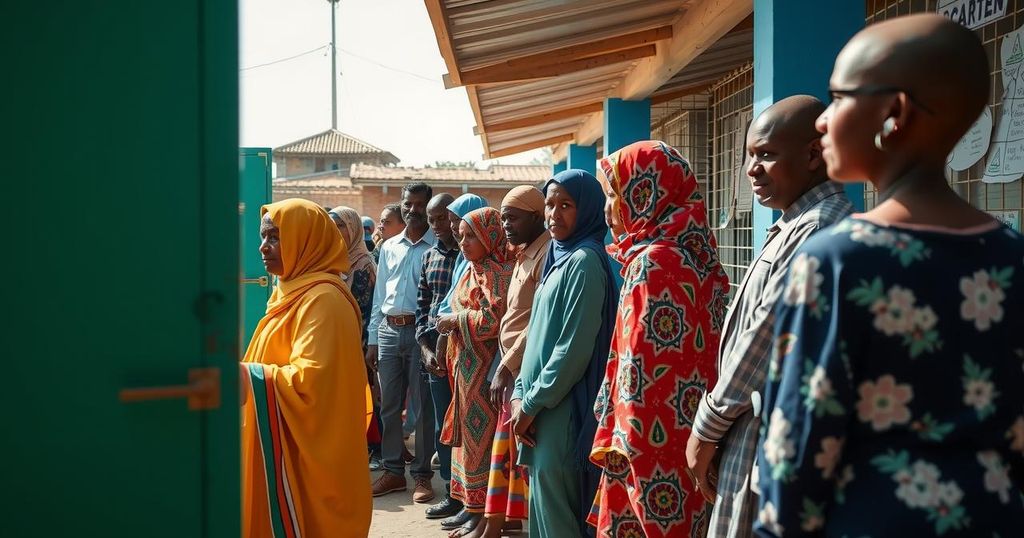Politics
ABD, ABDIRAHMAN ALE, ABDIRAHMAN ALEELI, ABDIRAHMAN MOHAMED ABDULLAHI, AFRICA, CIVIC ENGAGEMENT, CURRENT EVENTS, ELECTION, GOVERNANCE, HARGEISA, HORN OF AFRICA, MO, MUSE BIHI ABDI, PRESIDENTIAL ELECTION, PRESIDENTIAL ELECTIONS, SOMALIA, SOMALILAND, SOMALILAND SOMALILAND
Isaac Bennett
0 Comments
Voting Underway in Somaliland’s Key Presidential Election
Somaliland commenced its presidential election on November 13, 2024, after a two-year delay amid regional tensions. President Muse Bihi Abdi is seeking re-election against opponents prioritizing democratic reforms and national unity. Over 1 million voters were set to participate at more than 2,000 polling stations. The election follows economic challenges and geopolitical tensions concerning Somalia and Ethiopia’s recent agreements, raising concerns about stability in the electoral process.
Voting commenced on November 13, 2024, in Somaliland, a self-declared republic located in the Horn of Africa, as citizens participated in a presidential election that had been postponed for two years. The election is especially significant amidst ongoing regional political tensions. Over 1 million voters were expected to cast their ballots at more than 2,000 polling stations, with 28 international observers monitoring the voting process. President Muse Bihi Abdi seeks a second term after advocating for Somaliland’s international recognition during his first seven years in office. His main opponent, Abdirahman Mohamed Abdullahi of the Waddani Party, focused his campaign on democratic reforms and social cohesion, whereas Faisal Ali Warabe from the Justice and Welfare Party aimed to establish a national unity government. Somaliland has maintained a stable political system since it declared independence from Somalia in 1991, despite lacking widespread international recognition. However, economic challenges led to the delay of the presidential election, emphasizing local priorities like job creation and economic improvement. Additionally, a recent agreement with Ethiopia, allowing Somaliland to utilize the Indian Ocean in exchange for recognition, has heightened political tensions with Somalia, which views the arrangement as a threat to its territorial integrity. This election marks the fourth presidential vote for Somaliland, raising questions about the electoral process’s stability and consistency.
Somaliland declared independence from Somalia in 1991 amid a violent conflict and has since established its own government, currency, and security structures. Despite its autonomous status, Somaliland is not recognized as a separate nation by the international community, which complicates its relationships with neighboring Somalia and other countries. The region has been relatively stable compared to Somalia, which is still grappling with political instability and insecurity. However, Somaliland’s political landscape is shaped by ongoing economic struggles and the recent geopolitical developments, particularly its agreements with Ethiopia, further complicating its quest for international recognition and stability. The delayed elections have prompted concerns regarding the electoral integrity and overall governance in the region.
In conclusion, the presidential election in Somaliland represents a crucial moment in the region’s political landscape. With high voter turnout expectations and a focus on local economic priorities, the election will not only determine the leadership for the next term but will also reflect the broader aspirations of Somaliland’s citizens for recognition and stability. The outcomes may have lasting implications on the political dynamics within Somaliland and its relationship with Somalia as well as neighboring countries.
Original Source: apnews.com




Post Comment